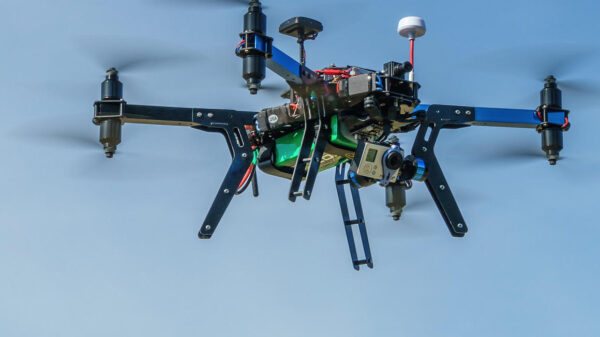By Jennifer Cook, Policy Director, ACLU of North Dakota
Another legislative session wrapped up at the end of April in North Dakota. We spent the session advocating for bills that protect or advance North Dakotans’ civil liberties and rights and defending against bills that would compromise them. More than 700 bills were introduced this session and we tracked and lobbied on a good number of them. We had some wins, a loss, and made some bad bills a little more palatable as well. Because our lobbying efforts were so vast this year, we’re breaking up our legislative recap into a three part series.
The 2017 legislative session was challenging particularly because there were a myriad of bills that took direct aim at our First Amendment rights. Although there were many bills that sought to chip away at those rights, we were successful in defeating or lessening the impact of many of them. Our first legislative recap will recap the anti-protesting bills we lobbied on this session.
Disorderly Conduct causing Economic Harm – HB 1193 (Defeated)
HB 1193 was introduced by prime sponsor Rep. Larry Klemin. The bill would have enhanced the penalty of a miscellaneous misdemeanor like disorderly conduct to a class C felony for anyone who was found guilty of committing the misdemeanor offense and the associated conduct was found to have caused one thousand dollars or more of economic harm. The bill’s language was problematic because it likely would have encompassed activities that are strictly protected by the First Amendment. After all, the intent of protests like boycotts is to cause economic harm. The US Supreme Court has held that such activity is protected by the First Amendment. We collaborated with the ND AFL-CIO and the ND Association of Criminal Defense Lawyers to defeat this bill.
Motor Vehicle Driver Immunity – HB 1203 (Defeated)
This bill was introduced by prime sponsor Rep. Kempenich. The intent of the bill was to immunize drivers from liability if they hit a protestor or any pedestrian on a roadway. The language of this bill was so broad that its application would have allowed drivers to operate their vehicles without fear of liability in most any circumstance. Needless to say, this bill was ill-conceived and dangerous. We worked with trial lawyers and others to ensure the House committee members and representatives understood the ramifications of the passage of this bill.
Anti-Masking Bill – HB 1304 (Passed)
HB 1304 was introduced by prime sponsor Rep. Al Carlson. The bill sought to criminalize any person wearing a mask or hood in a public place and provided some exceptions for religious purposes, athletic activities, Halloween, seasonal or weather related coverings, and a few others. For purposes of the First Amendment, the bill’s prohibition on wearing masks or hoods on a public street unless allowed by the listed exceptions in the bill would have unconstitutionally prohibited the wearing of a mask during a protest on a public street or sidewalk. We lobbied against the passage of this bill in its entirety, but we also suggested that the unconstitutional aspect of the bill could be remedied by adopting much narrower language that only made it a crime to wear a mask or hood to conceal one’s identity during the commission of a crime. The House committee chose to adopt the amendment we suggested and the Senate added new language that made it a crime to wear a mask or hood with the intent to harass or intimidate another during the commission of a crime. Although we argued the bill as amended was unnecessary the bill passed and was signed into law. Despite the bill’s passage, the language of the new law is much narrower than originally proposed by Rep. Carlson and does not upon its face infringe upon First Amendment rights.
Increased Penalties for the Criminal Offense of Rioting – HB 1426 (Passed)
HB 1426 was introduced by prime sponsor Rep. Todd Porter. The bill sought to increase the penalties for engaging in and inciting a riot. The penalty for engaging in a riot increased from a class B misdemeanor to a class A misdemeanor which carries the possibility of up to one year in jail and a three thousand dollar fine. The penalty for inciting a riot of that involves one hundred people or more increased from a class C felony to a B felony which carries up to ten years in jail and a twenty thousand dollar fine. Proponents argued the heavier penalties required by this legislation would deter protesters from engaging or inciting a riot. North Dakota’s definition of riot is quite broad and the offense can encompass a wide variety of behavior. Despite proponents arguments that HB 1426 should be applied to “tumultuous and violent conduct” it’s clear protester activity that amounted to much less than “tumultuous and violent conduct” was deemed rioting by police and prosecutors during NoDAPL. The riot offense has and can be used to criminalize First Amendment activity. Despite our strong arguments that the bill would likely chill First Amendment speech, criminalize legitimate protest activity, and encumber the criminal justice system, the legislature passed HB 1426.
Loitering – HB 1383 (Defeated)
This bill was introduced by prime sponsor Rep. Todd Porter. The intent of the bill was to criminalize persons who loitered in public or private spaces. The bill’s language would have made it a class B misdemeanor for a person to stand in a public or private place and refuse to reveal their identity to police if the person’s presence in the area caused another person reasonable and justifiable alarm for the safety of their person or property. The bill’s language was broad and vague and arguably violated the Due Process clause of the US Constitution. Evidence shows that the enforcement of loitering laws in other parts of the country disproportionately and needlessly sweeps homeless persons, people living in poverty, and people of color into the criminal justice system. Such laws can also have a chilling effect on legitimate First Amendment protected activity in public spaces. We collaborated with the ND Catholic Conference to oppose this bill. HB 1383 received a Do Not Pass recommendation from the House Judiciary committee and during the House floor vote it failed by wide margins.


